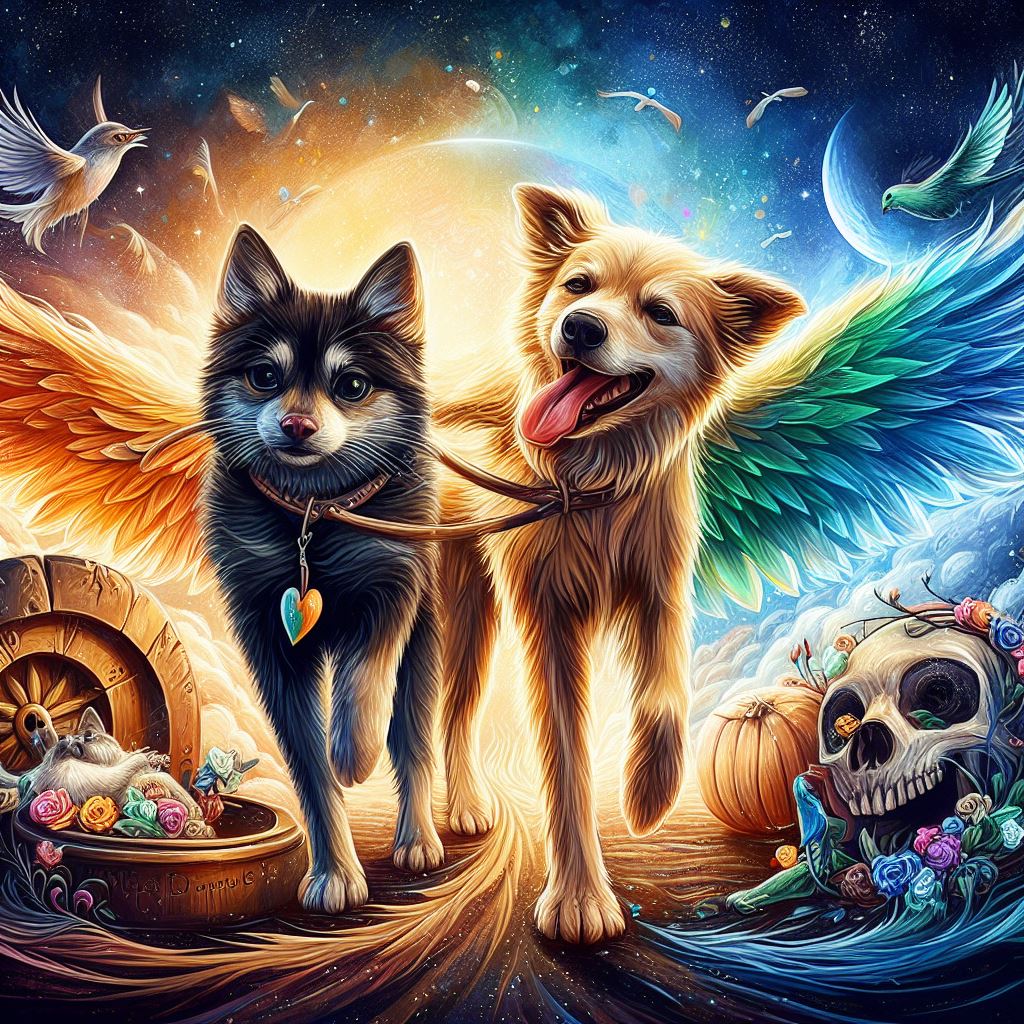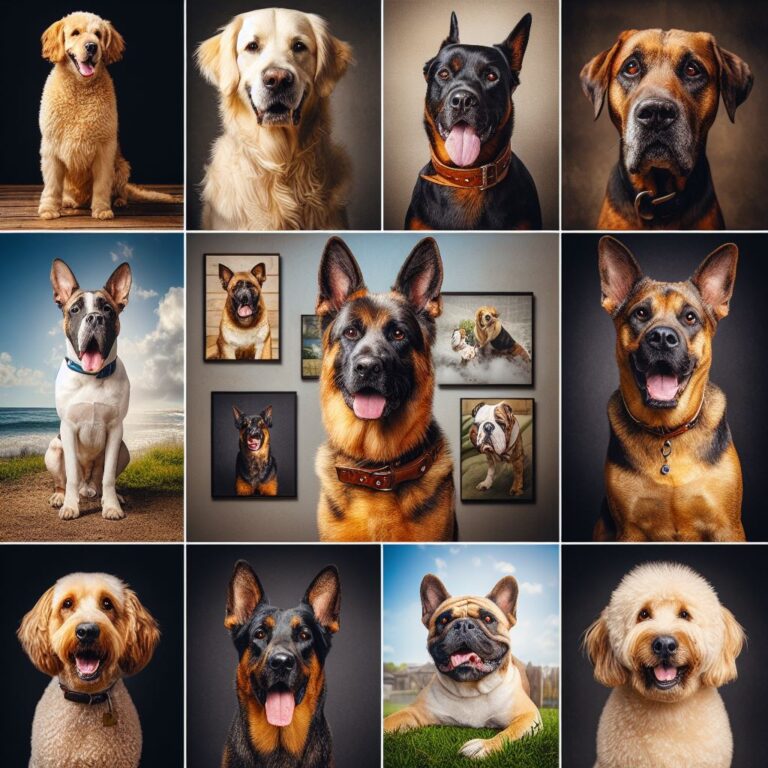Pet Loss and Grief: Coping with the Passing of a Beloved Companion
Unveil the Tears, Love, and Healing: The Heartfelt Guide to Coping with Pet Loss. Get Ready to Share Your Emotional Journey
Table of Contents
- Introduction
- Understanding the Depth of Grief
- The Unbreakable Bond
- The Realness of Grief
- The Grief Process
- Denial and Shock
- Anger and Guilt
- Bargaining and Depression
- Acceptance and Healing
- The Impact of Pet Loss
- Emotional Turmoil
- Physical Symptoms
- Grief Triggers
- Coping with Pet Loss
- Allow Yourself to Grieve
- Create a Memorial
- Reach Out for Support
- Seek Professional Help
- Give Back
- Adopting a New Companion
- Remembering and Celebrating
- Creating a Memory Book
- Holding a Memorial Service
- Planting a Memorial Garden
- Supporting Children Through Pet Loss
- Honest Communication
- Encourage Expression
- Be Patient
- The Importance of Self-Care
- Rest and Nutrition
- Seek Solace in Nature
- Journaling
- The Role of Rituals
- Lighting Candles
- Framing a Photo
- Visiting a Special Place
- Helping Others Understand
- Educate Friends and Family
- Encourage Empathy
- The Healing Power of Time
- Grief is Personal
- Embracing the Memories
- Conclusion
Introduction
Losing a pet is a profound and heart-wrenching experience. These beloved companions hold a special place in our hearts, providing us with unwavering love, comfort, and companionship. When they pass away, the grief that ensues is real and deeply emotional. In this article, we will explore the depths of pet loss and grief, the ways it impacts us, and most importantly, how to cope with the pain while celebrating the beautiful memories we shared with our furry friends.

Understanding the Depth of Grief
The Unbreakable Bond
Our pets are more than just animals; they are cherished family members who offer unconditional love and support. The bond we share with them is often akin to the bond we have with human loved ones.
The Realness of Grief
It’s essential to acknowledge that grieving for a pet is entirely legitimate. The depth of our sorrow mirrors the depth of our love for them. Grief is a natural response to loss, whether it’s the loss of a family member, a friend, or a beloved pet.
The Grief Process
Denial and Shock
When a pet passes away, it’s not uncommon to initially feel shock and disbelief. We may expect them to come bounding through the door as they always have, only to be met with the harsh reality of their absence.
Anger and Guilt
Guilt and anger are frequent companions during the grieving process. We may blame ourselves for not doing more, even when we’ve provided the best care possible. Anger at the universe for taking our cherished companion can be equally intense.
Bargaining and Depression
We may find ourselves bargaining with a higher power, hoping for a miracle that will bring our pet back. As the realization of their loss sinks in, depression can take hold, leaving us with overwhelming sadness.
Acceptance and Healing
With time, acceptance begins to emerge. While the pain never truly disappears, we learn to carry it with us as we heal. Healing involves cherishing the memories and finding ways to move forward.

The Impact of Pet Loss
Emotional Turmoil
The loss of a pet can trigger a whirlwind of emotions. We may experience intense sadness, loneliness, and even a sense of emptiness. Our daily routines, once filled with caring for our pet, can become reminders of their absence.
Physical Symptoms
Grief can manifest physically as well. We may feel fatigued, have trouble sleeping, or experience changes in appetite. These physical symptoms are all part of the grief process.
Grief Triggers
Certain places, objects, or even smells can trigger waves of grief. A familiar park where you used to walk your dog, an empty food bowl, or the sound of a cat’s purr can all bring back the memories and emotions associated with your pet.
Coping with Pet Loss
Allow Yourself to Grieve
It’s crucial to give yourself permission to grieve. Suppressing your emotions can prolong the healing process. Let yourself cry, reminisce, and feel the pain of loss.
Create a Memorial
Honoring your pet’s memory can be a beautiful way to cope with their passing. Create a memorial, whether it’s a scrapbook of cherished moments, a tree planted in their honor, or a piece of art dedicated to them.
Reach Out for Support
Don’t be afraid to lean on friends and family during this challenging time. They understand the depth of your grief and can offer comfort and companionship.
Seek Professional Help
If your grief becomes overwhelming or debilitating, consider seeking the help of a therapist or grief counselor. They can provide guidance and support tailored to your specific needs.
Give Back
Many find solace in giving back to animals in need. Volunteering at an animal shelter or making a donation to a pet-related charity can be a meaningful way to honor your pet’s memory.
Adopting a New Companion
While it may take time, some people find comfort in opening their hearts to a new pet. This can be a way to channel your love and provide a home for an animal in need.

Remembering and Celebrating
Creating a Memory Book
Compile a memory book filled with photographs, anecdotes, and mementos of your pet. This book can serve as a lasting tribute to the joy and love they brought into your life.
Holding a Memorial Service
Gather friends and family to celebrate your pet’s life with a memorial service. Share stories, light candles, and remember the happiness your companion brought to your life.
Planting a Memorial Garden
Planting a garden in your pet’s memory can be a beautiful and therapeutic way to remember them. Each bloom can serve as a reminder of the love that will never fade.
Supporting Children Through Pet Loss
Honest Communication
When children lose a pet, it’s essential to communicate honestly and gently. Explain the concept of death in a way that is age-appropriate, using simple and straightforward language.
Encourage Expression
Encourage children to express their grief through art, storytelling, or even by creating a memorial for their pet. This can help them process their emotions.
Be Patient
Grief affects children differently than adults. Be patient and understanding as they navigate their feelings. Offer comfort and reassurance as needed.
The Importance of Self-Care
Rest and Nutrition
During the grieving process, self-care is crucial. Ensure you are getting enough rest and proper nutrition to help your body cope with the physical and emotional strain of grief.
Seek Solace in Nature
Spending time in nature can be incredibly healing. Take long walks in the park, sit by a serene lake, or simply enjoy the beauty of the outdoors to find solace.
Journaling
Keeping a journal can be a therapeutic way to express your emotions. Write letters to your pet, document your grief journey, and record the precious memories you shared.
The Role of Rituals
Lighting Candles
Lighting a candle in your pet’s memory can be a simple yet profound ritual. The soft glow symbolizes the enduring love and light your pet brought into your life.
Framing a Photo
Choose a cherished photograph of your pet and frame it in a special place in your home. This visual reminder can provide comfort and a sense of presence.
Visiting a Special Place
Visit a place that held significance to you and your pet. Whether it’s a favorite park, a beach, or a hiking trail, spending time in these spaces can help you feel close to them.
Helping Others Understand
Educate Friends and Family
It’s common for friends and family to underestimate the depth of your grief. Educate them about the importance of your pet in your life and the significance of your loss.
Encourage Empathy
Help those around you understand that pet loss is akin to losing a family member. Encourage empathy and emotional support during this challenging time.

The Healing Power of Time
Grief is Personal
Grief is a highly individual experience, and there is no timeline for healing. Be patient with yourself, and allow yourself to grieve at your own pace.
Embracing the Memories
As time passes, the pain of loss may subside, but the love and memories of your pet will endure. Embrace these memories as a testament to the beautiful bond you shared.
Conclusion
Losing a beloved pet is an emotionally charged experience that tests the depths of our hearts. The grief that follows is real and intense, but it is also a testament to the love and joy that our companions brought into our lives. As we navigate the path of grief, let us remember that it is okay to mourn, to seek support, and to cherish the memories that will forever remain in our hearts. Our pets may no longer be with us in physical form, but their love and legacy endure, and they continue to light up our lives in spirit.
FAQs (Frequently Asked Questions)
1. Is it normal to grieve so deeply for a pet?
Absolutely. The depth of your grief reflects the depth of your love for your pet. It’s entirely normal to grieve deeply when you lose a beloved companion.
Learn more about coping with pet loss
2. How can I cope with the physical symptoms of grief?
Ensuring you get enough rest and proper nutrition is essential during the grieving process. Taking care of your physical well-being can help you cope with the emotional strain of grief.
Explore self-care tips for grief
3. What’s the best way to support a child through pet loss?
Honest communication, encouragement of expression, and patience are key when helping a child cope with pet loss. Tailor your approach to their age and understanding.
Find guidance on supporting children through pet loss
4. Is it okay to adopt a new pet after losing one?
Adopting a new pet is a personal decision and should not be rushed. Some find comfort in providing a home for a new companion, while others may need more time to heal.
Learn about the process of adopting a new pet
5. How can I help others understand the depth of my grief?
Educating friends and family about the significance of your pet in your life and encouraging empathy can help them better understand and support you during your grieving process.







